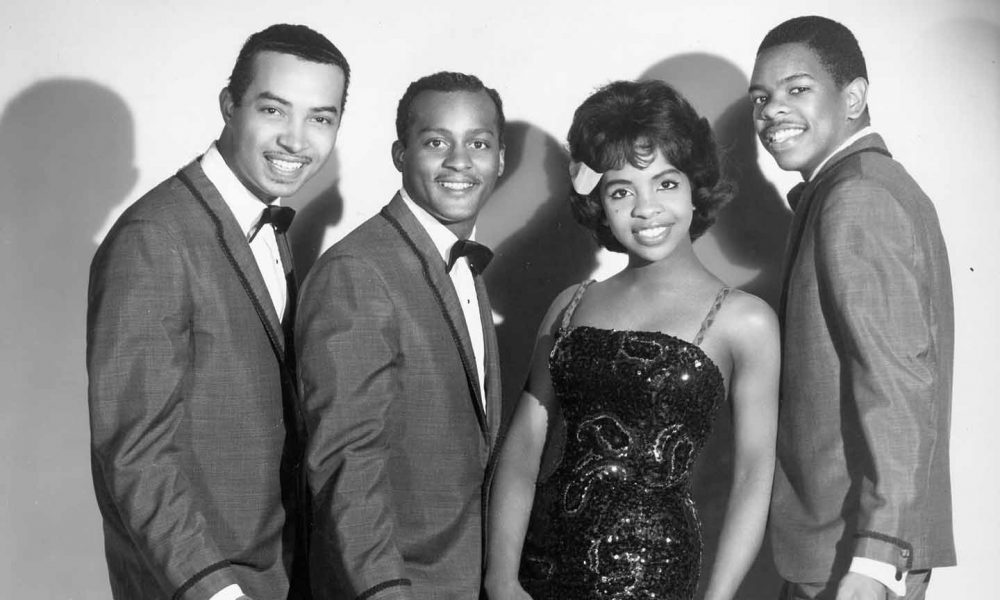‘I Heard It Through The Grapevine’: Gladys Knight Predates Marvin Gaye
The checkered story of ‘I Heard It Through The Grapevine’ included Gladys and the group’s R&B No.1 version, before Marvin took ownership of the song.

The checkered story of “I Heard It Through The Grapevine” is one that always ends with Marvin Gaye as the punchline. For such an indelible classic in the annals of soul music, that’s only right and proper.
But as we document elsewhere, the Norman Whitfield/Barrett Strong song had been through a few incarnations before Marvin made it his own. Not to mention that it had already been an R&B No.1. On December 2, 1967, that distinction was granted to the exciting Motown interpretation of “Grapevine” by Gladys Knight and the Pips.
The first recording of the song, by the Miracles, was in the summer of 1966, but it wasn’t even deemed worthy of release. Then Gaye took his first go at it, but Whitfield’s enthusiasm for the take was not matched by that of Berry Gordy, so that also remained in the vaults. The next chapter was for Whitfield, not just a key songwriter but increasingly a producer of influence at Motown, to try the song out on Gladys and the Pips.
The group had enjoyed an R&B chart-topper, and US pop top tenner, as early as 1961, when Knight was a mere 17, with “Every Beat Of My Heart.” That Vee-Jay hit was followed by another Top 3 soul success, this time on Fury, with “Letter Full Of Tears,” after which there was a gap until 1964 for their next winner, on the Maxx label, with “Giving Up.”
1967 was a banner year for Knight and the Pips at Motown. In May, Whitfield recorded them on his co-write with Eddie Holland, “Everybody Needs Love,” a much-travelled Motown number first taped by Mary Wells in 1964. The Pips” reading soared to No.3 R&B.
Norman then returned to the studio with Knight and the family group to record their version of “Grapevine” just as “Everybody” was being released, and was glad he did. The results were scintillating, with Gladys’ urgent lead vocal perfectly in tune with the Pips’ backing vocals and propulsive double percussion, by both Uriel Jones on drums and Benny Benjamin on cymbals.
The track entered the R&B listings in late October and hit No.1 on the Billboard chart in early December, staying there until the new year, in a six-week reign. It came close to the top of the pop chart too, spending three weeks at No.2, held off the top by first the Monkees’ “Daydream Believer” and then The Beatles’ “Hello Goodbye.”
Listen to the Best Motown Songs Ever playlist.
“It wasn’t just a record for us,” Knight wrote in her autobiography, Between Each Line of Pain and Glory. “It was a work permit, and work came flowing our way.”
Buy or stream “I Heard It Through The Grapevine” on Gladys Knight & the Pips’ Ultimate Collection.













KMatsu
December 4, 2015 at 6:18 am
No disrespect to Marvin intended, but how can anyone tell the story of “Grapevine” without discussing Creedence Clearwater Revival??? The song was originally written as just a generic soul tune with a heartbreak/betrayal angle, and that is exactly how Gladys & the Pips recorded it. Marvin deserves tremendous artistic credit for turning the sadness and heartbreak into a dark, haunting tale of suspicion, distrust and the agony of a love affair that is on the verge of breaking. He completely transformed the tone, message and “vibe” of the song, and made it what it is today.
However, while Marvin may have pointed out the direction, it was CCR that actually took the journey all the way down the dark road of suspicion and mistrust, and then on into the pit of paranoia and spite. Marvin’s voice was flexible enough to span the spectrum from soothing seductive pleasure to pain and heartbreak, but his “Grapevine” is still a bit too rich and mellow to the ear. Fogerty’s voice plunges down the path to utter destruction, from rumbling suspicion and insecurity to wails and gasps of soul-wrenching emotional pain. And then, after his anguished voice has broken, shattered and crawled off into the darkness to die, his guitar claws its way back up out of the pit to rage and rant some more. Flailing and staggering about for four angry, distortion-drenched minutes, like a hideous, wounded animal, it sinks its claws into your eardrums and drags you down into the pit along with every other shred of light remaining.
Sure, Marvin Gaye transformed the song and provided the template for one of the darkest, bluesiest soul ballads ever written. But it was CCR who turned it into a timeless piece of musical history.
Markus D
August 17, 2017 at 3:29 pm
I fully disagree with the above post. History and time proved that Marvin’s version is the etarnal winner, wheras CCRs version is something for a niche audience and clearly a product of its time. Marvin’s version exhibits its own space in music history.